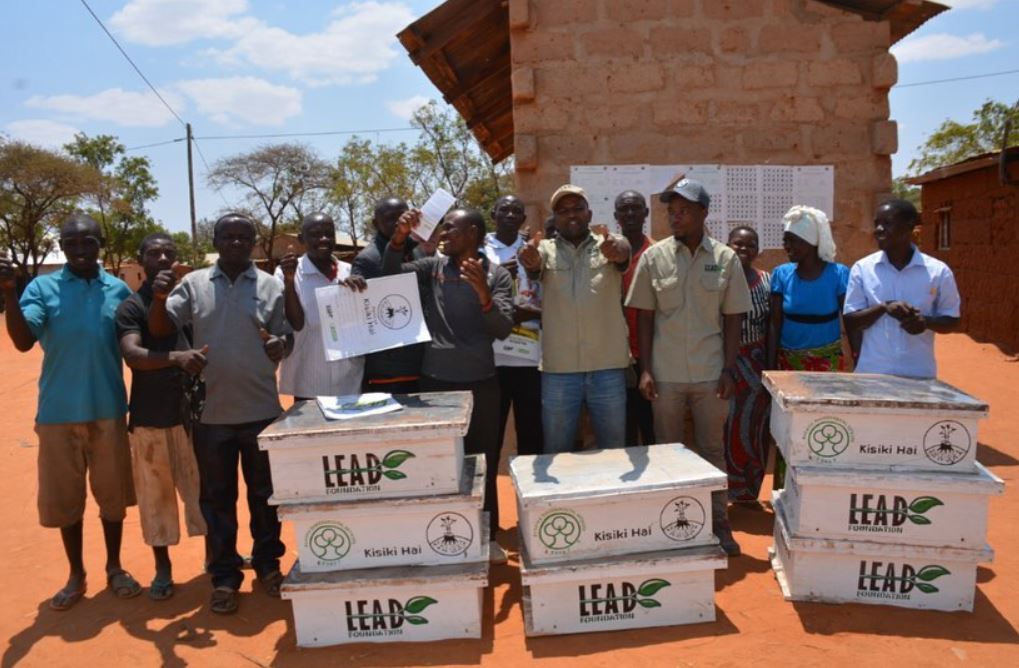This is individual initiatives from Chamwino District Program Coordinators amid requests from some of the Champion farmers who have been inspired by our ongoing Kiboriani project. However, with the understanding that, LEAD Foundation has got no beehives in their stock, coordinators had to go hunting somewhere else.

In the mid of their search, they found that Dodoma Environmental Network (DONET) had a stock of beehives. Thereafter, coordinators issued official request to DONET on their intention to collaborate in supporting these farmers. DONET accepted, with the request to get forty percent of the production per beehive. It was also agreed that, DONET will take on all supervision activities during implementation while LF will take on branding and transportation cost.
Beekeeping is a forest friendly economic activity this is because bees play an important role in pollination, as they are the major pollinators of most of the tree species, vegetables and crops, thus contributing to the sustenance of floral diversity and good in crop yields in the farming sector.

Achievements
Twenty-eight (28) beehives were distributed to four villages of Manchali, Ikombolinga, Chita and Manzase on the bases of grouping champion farmers with other best farmers in FMNR technique and water bunds (Fanya Juu/Fanya Chini).
Table: Summary of the beehives’ distribution
| Village | Number of Bee hives | Number of Champions | Number of farmers |
| Manchali | 9 | 4 | 5 |
| Chita | 2 | 2 | 2 |
| Ikombolinga | 5 | 4 | 5 |
| Manzase | 8 | 5 | 8 |



Comments are closed.